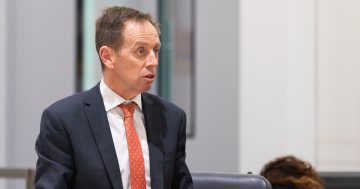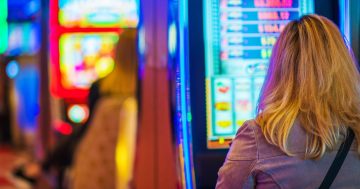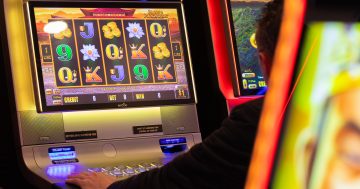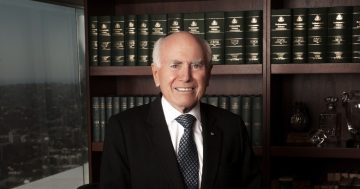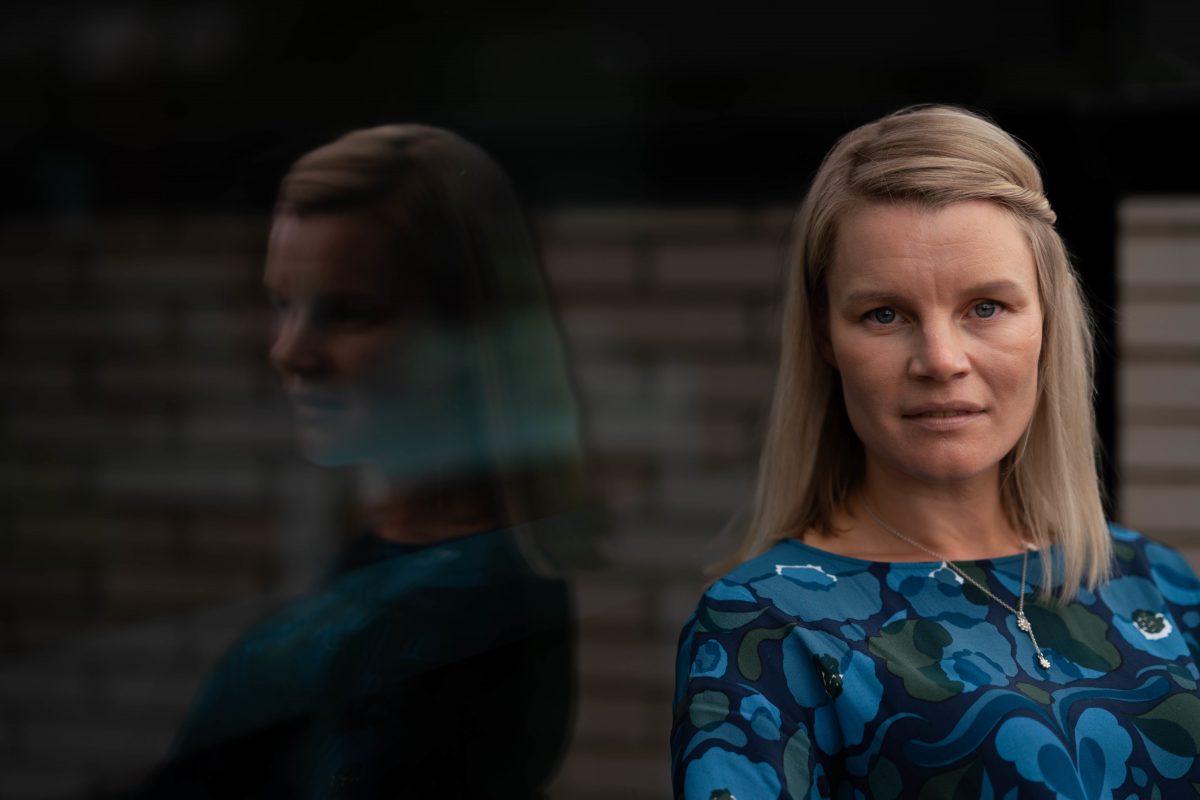
ANU Centre for Gambling Research director Dr Aino Suomi (pictured) is studying the gambling habits of young Canberrans. Photo: Tracey Nearmy/ANU.
The director of the ANU Centre for Gambling Research has labelled initial observations from a study into the gambling habits of young Canberrans as “pretty concerning”.
Dr Aino Suomi said most of the young people surveyed so far had started gambling while underage.
“Some of these young adults, they started when they were 10, 11, 12 [or] 13,” she said.
The study hopes to learn more about young Canberrans’ pathways to gambling and key areas where public health initiatives or government policies could prevent gambling harm.
Although considerable research has been conducted into young people and gambling behaviours, no others have looked at an ACT-specific context, and few had been conducted post-pandemic.
Dr Suomi observed that young people are being exposed to gambling advertising on a variety of digital platforms. In addition to traditional sports betting advertising, a more “covert” social media method came to light during the interviews.
“You might jump on YouTube and watch other people streaming [and] they’re gambling and spending huge amounts of money,” she explained.
Another focus of the study has been the ‘gamblification’ of gaming, where popular video games integrate gambling-like features, such as the ability to buy ‘loot boxes’ with randomised contents.
“In an ideal world, of course, we wouldn’t have gambling companies targeting these young people and people spending their money on gambling or addictive products,” Dr Suomi said.
“But we know that we can’t stop this happening so [we’re asking], ‘What are the safe ways of doing it? What does it look like when they experience harm, and what are the most harmful types of gambling?’.”
The ANU study is notable for taking into account the changes to young people’s online habits as a result of the pandemic and the impact this could have on gambling behaviour.
“We know that during COVID specifically, young people started living their lives through their devices [which have access to online betting and gambling] even more,” Dr Suomi said.
“We call [young people] a vulnerable group because, for the first time in their lives, they have more disposable income [and] they might have just moved out of home [with] not that many responsibilities.
“But also, this is the age group where we know that risky behaviours peak as well, like alcohol, drugs, all those things, so [young people are] kind of easy targets for the gambling companies.”
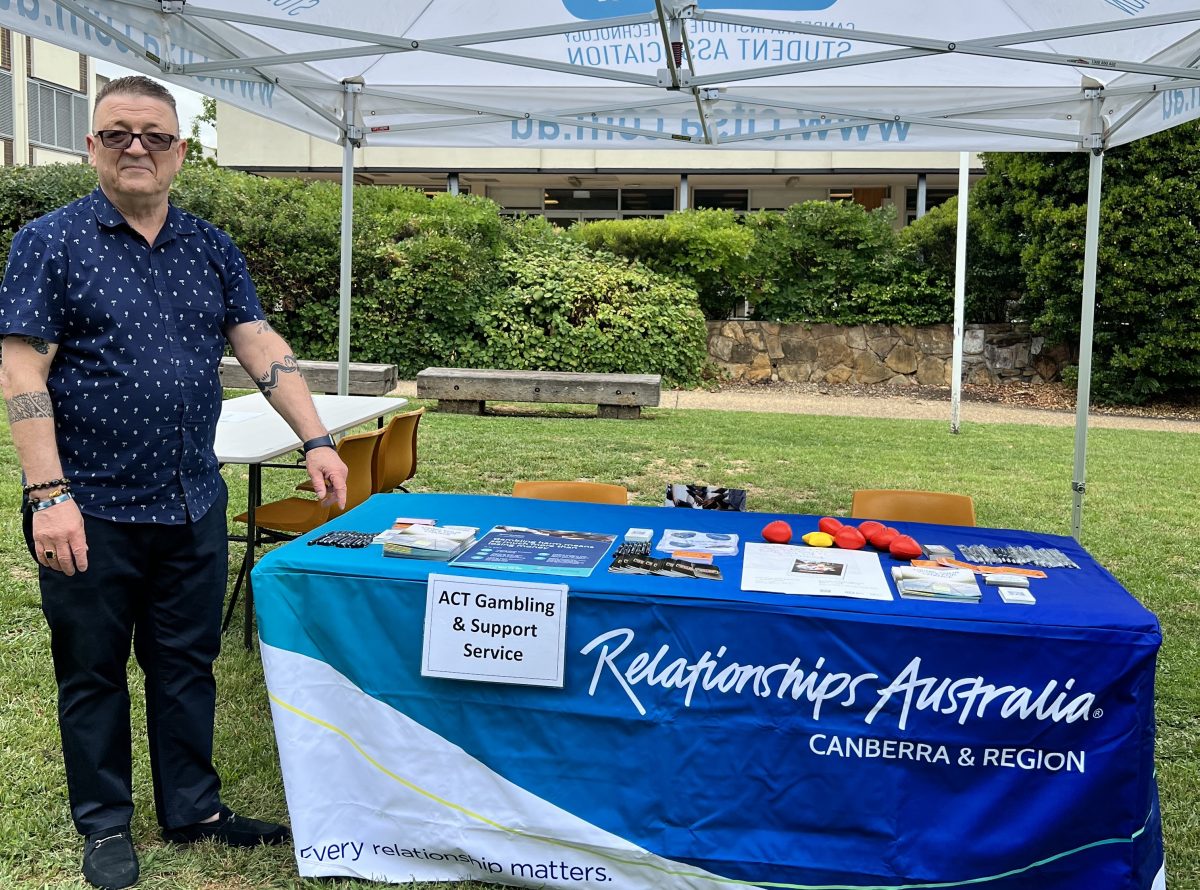
ACT Gambling Support Service peer support worker Markus Fischer (pictured) said gambling caused “carnage” to his life. Photo: Supplied.
As ACT Gambling Support Service peer support worker Markus Fischer explained, these childhood and youth experiences can have a lasting influence on adult life. His childhood experience with a gambling family member set the stage for an addiction that lasted until his middle age.
“[Gambling] caused a lot of carnage in my life, I’ve been through two marriages [and] lost everything [including my] house, car, friendships, birth family,” Mr Fischer said.
“Gambling harm is so much more than losing money … I lost my self-esteem, my pride, those things you can’t just go and buy off a supermarket shelf.”
Mr Fischer said the worst thing to ever happen to him was winning $33,000 from a gaming machine when he was 20, because it made him feel like gambling was easy and exciting.
Despite his experiences, Mr Fischer said he was not against gambling and that demonising the activity or taking major policy actions like outlawing gaming machines in the ACT would not work.
He said the answer was rather in educating people about gambling harm, which he does through his current role by speaking with everyone from club staff down to people in rehabilitation programs.
Dr Suomi similarly said that the main focus of the ANU study, once it is completed later this year, would be determining the best ways to deliver the findings to schools, parents and young people themselves.
MLA Dr Marisa Paterson, who worked in gambling policy for 15 years before entering politics, said the study was important and more needed to be done to understand the impacts of online gambling.
“The community has spoken very clearly that they’re fed up with the online gambling ads that infect our TV and social media … and it’s young people who these ads are targeted at,” she said.
“I’m hoping that the ANU study will highlight some of the challenges faced by young people because of predatory online gambling companies.”
Dr Paterson noted the legislative framework for reforming online gambling was at a federal level, but said the ACT Government would also consider the study’s findings.
“If [young people] are experiencing harm from gambling, I think that is absolutely something the ACT government should seek to understand better and look to address and support our young people,” she said.
If you are interested and eligible to take part in the ANU’s young adults gambling online in the ACT study, visit this page to find out more or follow this link to register your interest.
If gambling harm is impacting you, a friend or a family member, you can find free confidential online support at gamblinghelponline.org.au, or you can speak to a support person on 1800 858 858.












